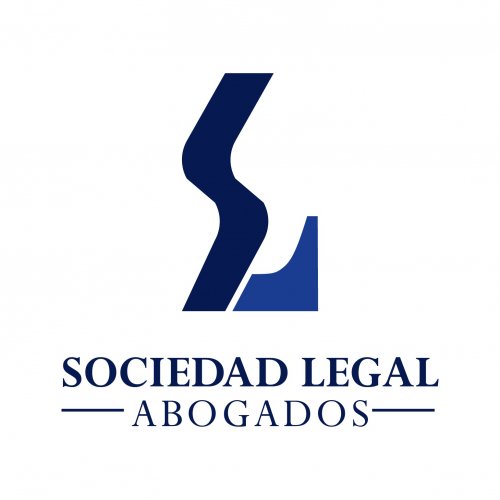Best Faith-Based Law Lawyers in Ecuador
Share your needs with us, get contacted by law firms.
Free. Takes 2 min.
Or refine your search by selecting a city:
List of the best lawyers in Ecuador
About Faith-Based Law in Ecuador
Faith-Based Law in Ecuador refers to the legal matters involving religious groups and their members, as well as the interaction between religious laws and the State's legal framework. Ecuador, a multicultural and multi-religious country, recognizes the right to freedom of religion. The constitution respects religious diversity and permits the practice and preservation of religious customs and laws within the bounds of national law. This area of law addresses issues such as the governance of religious institutions, religious marriages, exemptions based on religious beliefs, and the intersection of public policy with religious practice.
Why You May Need a Lawyer
There are various situations where seeking a lawyer specializing in Faith-Based Law can be beneficial:
- If you're a member of a religious group needing assistance with the legal recognition of your organization.
- For navigating laws concerning religious marriage ceremonies and their legality under Ecuadorian law.
- Handling property disputes involving religious institutions.
- Seeking guidance on religious rights and how they interact with public policy and national laws.
- When facing discrimination or legal issues due to religious beliefs or practices.
Local Laws Overview
Ecuador's legal system provides a framework for the coexistence of various religious practices, accommodating the diverse religious landscape of the country. Key aspects include:
- Constitutional Rights: Guarantees freedom of religion and equality before the law, prohibiting discrimination based on religious beliefs.
- Legal Recognition: Religious groups must register with appropriate governmental bodies to gain legal recognition.
- Religious Marriage: While religious ceremonies are significant, they must be civilly registered to be deemed legally binding.
- Religious Holidays: Acknowledges certain religious holidays within the public calendar.
- Education: Schools may offer religious education, provided it adheres to educational standards set by the government.
Frequently Asked Questions
What is the process for registering a religious organization in Ecuador?
To register a religious organization, you must apply through the legal system by submitting the necessary documents, which typically include the organization's charter and proof of lawful existence within Ecuador.
Are religious marriages legally recognized in Ecuador?
Religious marriage ceremonies are culturally recognized, but they must also be registered as civil marriages with the appropriate state authority to be legally binding.
Can I refuse certain medical treatments due to my faith?
Ecuadorian law generally respects the right to refuse medical treatment based on religious beliefs, although there may be exceptions in cases involving public health concerns or the welfare of minors.
How does Ecuador deal with religious discrimination?
There are provisions against discrimination based on religious beliefs in various Ecuadorian laws. Victims of discrimination can file complaints with human rights offices or seek legal recourse through the courts.
Are there any tax exemptions for religious organizations?
Yes, registered religious organizations may qualify for tax exemptions on properties and donations to support their operations and community services.
Is religious education allowed in public schools?
Certain types of religious education are permitted in schools, often as part of a broader cultural curriculum, provided it complies with national educational guidelines.
Can a religious leader officiate a legal marriage?
Yes, a religious leader can officiate a marriage, but it must also be registered with a civil authority to ensure its legality.
Are there any legal protections for religious attire in public spaces?
Though there are no specific laws addressing religious attire, general anti-discrimination laws apply, thus offering some protection for individuals to wear religious garments.
What should I do if my religious rights are violated?
You can file a formal complaint with local authorities or human rights organizations, and it might be advisable to consult with a legal professional specializing in Faith-Based Law.
How are religious properties handled under Ecuadorian law?
Religious properties typically need to be registered, and their use must conform with both religious and national regulations. Disputes over property are settled in court, considering the organization's recognized statutes.
Additional Resources
You may consider reaching out to the following bodies for further assistance:
- National Secretariat for Religious Affairs: Offers guidance and support for religious groups seeking legal recognition.
- Ombudsman's Office: Provides assistance for individuals facing discrimination or legal issues related to faith.
- Local Bar Association: Can help you find qualified lawyers specializing in Faith-Based Law.
Next Steps
If you need legal assistance in matters related to Faith-Based Law in Ecuador, consider the following steps:
- Identify the specific nature of the issue, whether it involves registration, property, discrimination, or another area.
- Gather any relevant documents and information pertinent to your case.
- Contact legal professionals who specialize in Faith-Based Law for a consultation.
- Leverage resources and seek community support from appropriate religious or legal advocacy groups.
Lawzana helps you find the best lawyers and law firms in Ecuador through a curated and pre-screened list of qualified legal professionals. Our platform offers rankings and detailed profiles of attorneys and law firms, allowing you to compare based on practice areas, including Faith-Based Law, experience, and client feedback.
Each profile includes a description of the firm's areas of practice, client reviews, team members and partners, year of establishment, spoken languages, office locations, contact information, social media presence, and any published articles or resources. Most firms on our platform speak English and are experienced in both local and international legal matters.
Get a quote from top-rated law firms in Ecuador — quickly, securely, and without unnecessary hassle.
Disclaimer:
The information provided on this page is for general informational purposes only and does not constitute legal advice. While we strive to ensure the accuracy and relevance of the content, legal information may change over time, and interpretations of the law can vary. You should always consult with a qualified legal professional for advice specific to your situation.
We disclaim all liability for actions taken or not taken based on the content of this page. If you believe any information is incorrect or outdated, please contact us, and we will review and update it where appropriate.
Browse faith-based law law firms by city in Ecuador
Refine your search by selecting a city.












